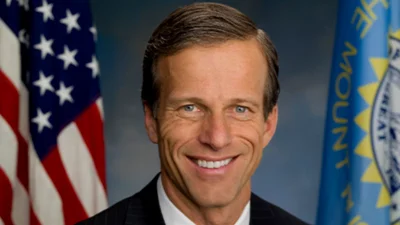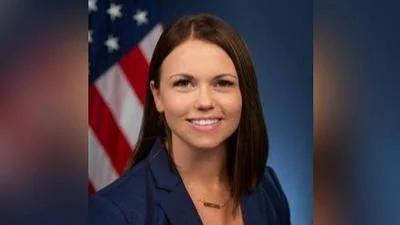PIERRE, S.D. -- South Dakota Attorney General Mark Vargo announced today a $438.5 million agreement in principle between JUUL Labs and 34 states and territories resolving a two-year bipartisan investigation into the e-cigarette manufacturer’s marketing and sales practices. In addition to the financial terms, the settlement would force JUUL to comply with a series of strict injunctive terms severely limiting their marketing and sales practices.
South Dakota’s allocation from the settlement is $6,181,829.70.
“This is an important settlement and a good day for South Dakota’s youth,” said South Dakota Attorney General Mark Vargo. “It is well established that vaping is dangerous for young people and this action helps ensure that such products are not aimed specifically at them.”
JUUL was, until recently, the dominant player in the vaping market. The multistate investigation revealed that JUUL rose to this position by willfully engaging in an advertising campaign that appealed to youth, even though its e-cigarettes are both illegal for them to purchase and are unhealthy for youth to use. The investigation found that JUUL relentlessly marketed to underage users with launch parties, advertisements using young and trendy-looking models, social media posts and free samples. It marketed a technology-focused, sleek design that could be easily concealed and sold its product in flavors known to be attractive to underage users. JUUL also manipulated the chemical composition of its product to make the vapor less harsh on the throats of the young and inexperienced users. To preserve its young customer base, JUUL relied on age verification techniques that it knew were ineffective.
The investigation further revealed that JUUL’s original packaging was misleading in that it did not clearly disclose that it contained nicotine and implied that it contained a lower concentration of nicotine than it actually did. Consumers were also misled to believe that consuming one JUUL pod was the equivalent of smoking one pack of combustible cigarettes. The company also misrepresented that its product was a smoking cessation device without FDA approval to make such claims.
The states and territories are in the process of finalizing and executing the settlement documents, a process that takes approximately 3-4 weeks. The $438.5 million would be paid out over a period of six to ten years, with the amounts paid increasing the longer the company takes to make the payments. If JUUL chooses to extend the payment period up to ten years, the final settlement would reach $476.6 million. Both the financial and injunctive terms exceed any prior agreement JUUL has reached with states to date.
As part of the settlement, JUUL has agreed to refrain from:
- Youth marketing
- Funding education programs
- Depicting persons under age 35 in any marketing
- Use of cartoons
- Paid product placement
- Sale of brand name merchandise
- Sale of flavors not approved by FDA
- Allowing access to websites without age verification on landing page
- Representations about nicotine not approved by FDA
- Misleading representations about nicotine content
- Sponsorships/naming rights
- Advertising in outlets unless 85 percent audience is adult
- Advertising on billboards
- Public transportation advertising
- Social media advertising (other than testimonials by individuals over the age of 35, with no health claims)
- Use of paid influencers
- Direct-to-consumer ads unless age-verified, and
- Free samples.
Alabama, Arkansas, Connecticut, Delaware, Georgia, Hawaii, Idaho, Indiana, Kansas, Kentucky, Maryland, Maine, Mississippi, Montana, North Dakota, Nebraska, New Hampshire, New Jersey, Nevada, Ohio, Oklahoma, Oregon, Puerto Rico, Rhode Island, South Carolina, South Dakota, Tennessee, Texas, Utah, Virginia, Vermont, Wisconsin, Wyoming have signed on to the agreement. The investigation was led by Connecticut, Texas, and Oregon.
Original source can be found here.



 Alerts Sign-up
Alerts Sign-up